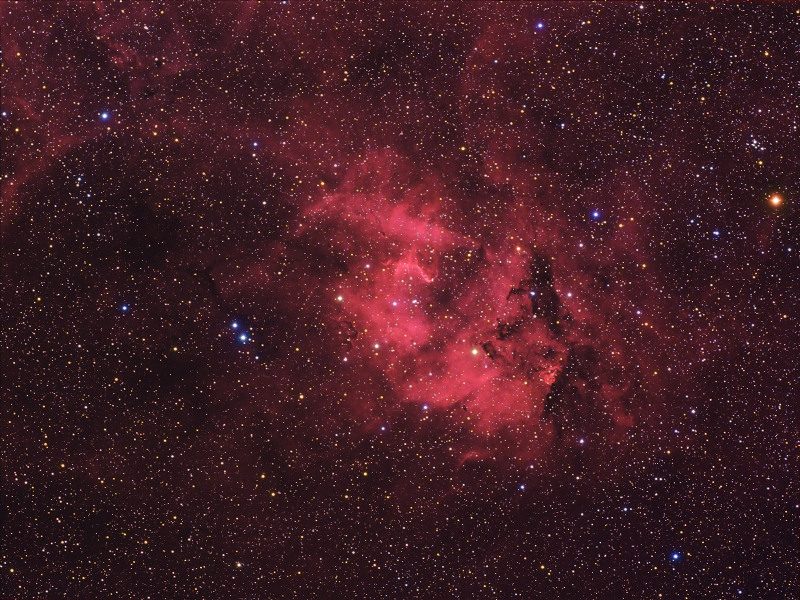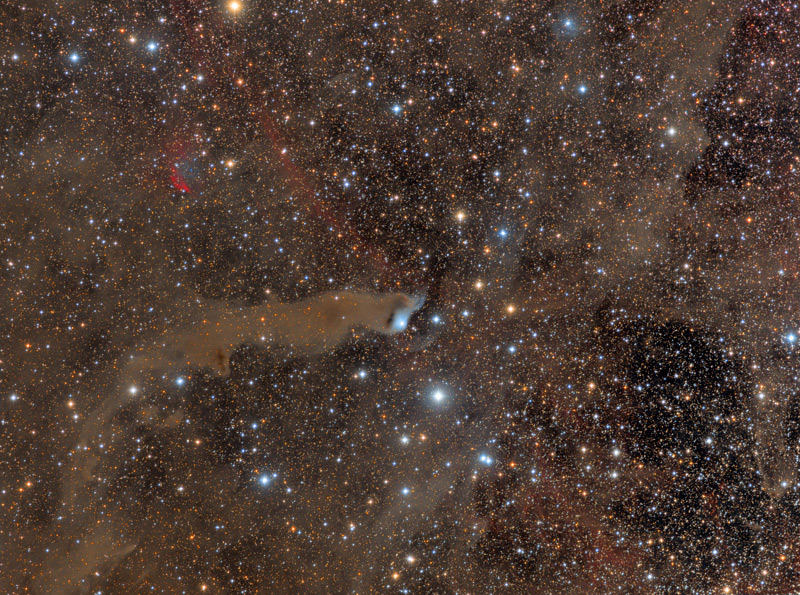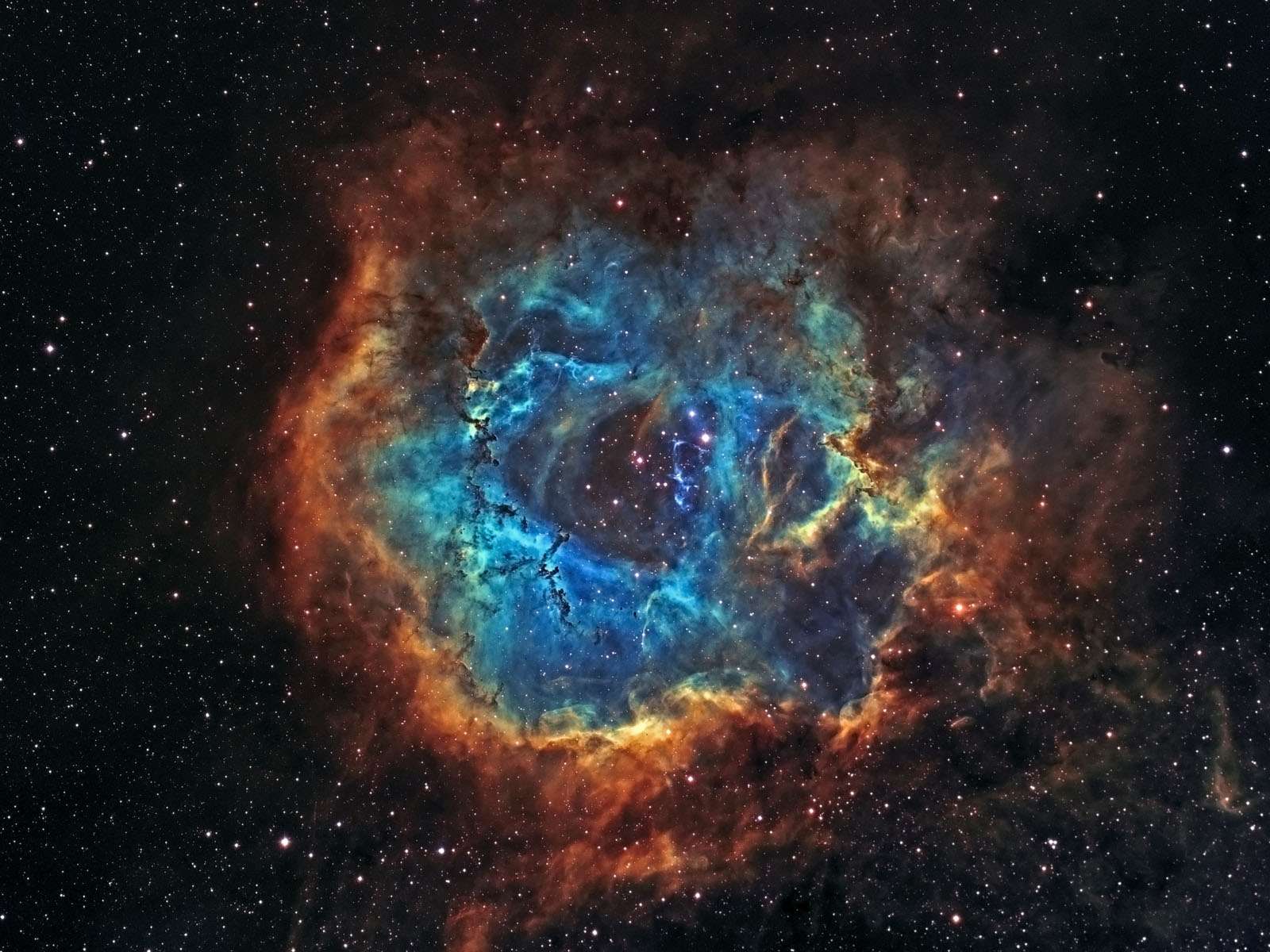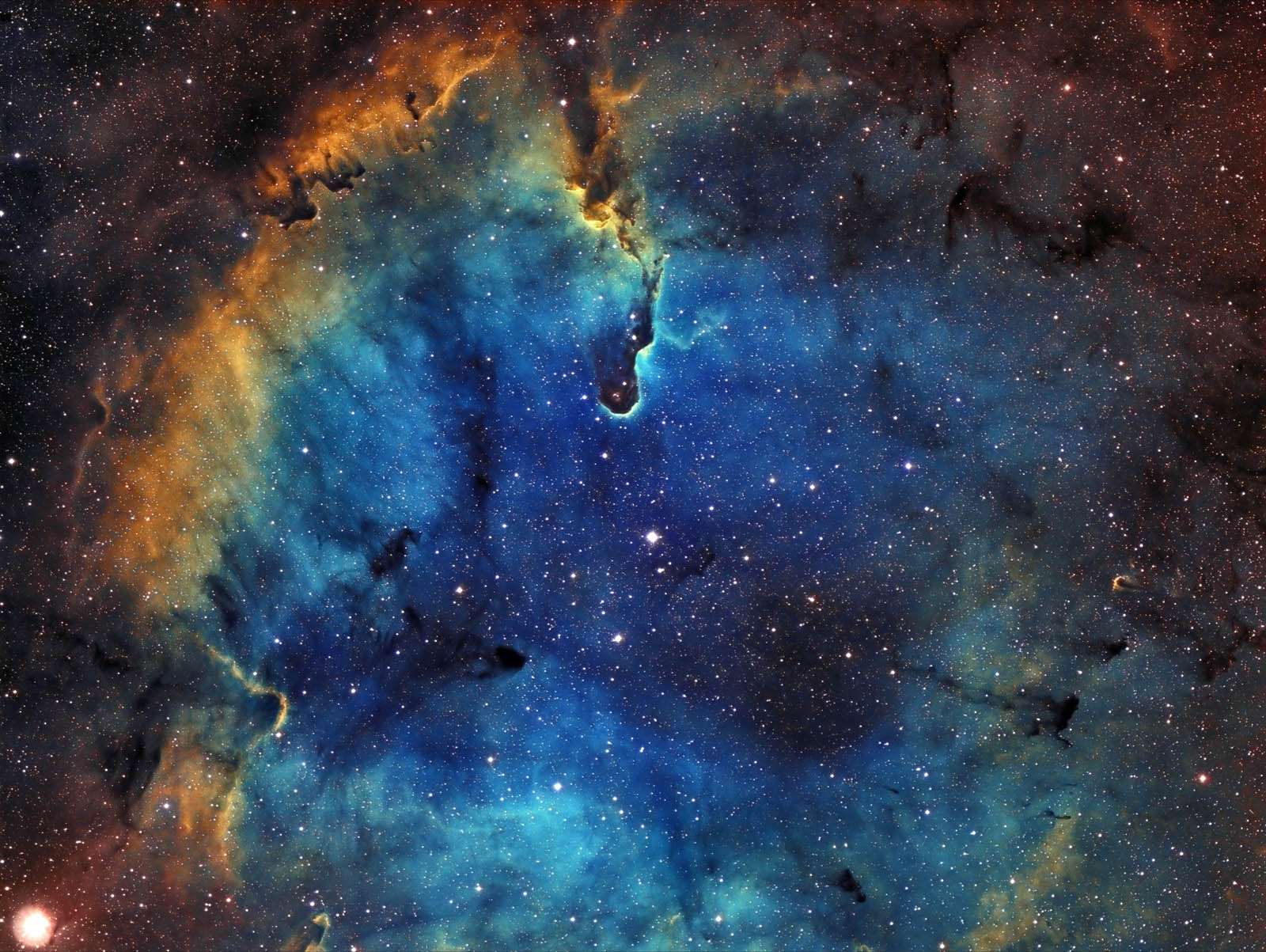Atoms for Peace Galaxy (NGC 7252 / Arp 226) - and some very distant globular clusters
http://www.rolfolsenastrophotography.com
Copyright: Rolf Wahl Olsen
Click here for a larger image
Click here for a large crop of the galaxy itself
This intriguing galaxy is located in Aquarius at a distance of 220 million light years. The outer loops and especially the long ejecta streams are very faint, but the core shines relatively brightly as a stellar point. The combined magnitude of the system is 12.7 within an area of approximately 1.9 x 1.6 arc minutes.
Within the swirls of the collision are numerous bright knots some of which are young ultra-luminous globular clusters containing up to a million hot blue stars each. Several hundreds of these exist near the core of the galaxy.
It is known that giant elliptical galaxies often contain a vast amount of globular clusters, for example the galaxy M87 in Virgo contains over 12,000 globulars. These are thought to have been acquired during past mergers with other galaxies which ultimately formed the elliptical galaxy itself. Still, the number of globulars around giant elliptical galaxies far exceeds the expected number that could be acquired from mergers alone. In this context it is therefore interesting that the collision currently happening in the Atoms for Peace galaxy seems to have triggered the creation of fresh young globular clusters, in addition to any ordinary globulars that would already have been orbiting the merging galaxies. The creation of new globulars during collisions could explain how giant ellipticals amass such a massive number of globulars over time.
This image likely represents the most distant globular clusters imaged with amateur equipment, being 220 million light years away. This is only possible due to the extremely high luminousity of these young globulars. To illustrate the luminousity of these clusters one can compare with globulars in our own Milky Way. The absolute magnitude M of an object can be calculated as follows, given its apparent magnitude m and luminosity distance D
L in parsecs:
M = m - 5(log10(DL) - 1)
For very large distances, the cosmological redshift complicates the relation between absolute and apparent magnitude, but for the Atoms for Peace galaxy it is probably safe to ignore this given that 220 million light years is not a very large distance in cosmological terms.
The brightest of the globulars in this image is [WSL93]3, the bright knot immediately to the left of the galaxy core, with a magnitude of 17.86. This translates to an absolute magnitude of -16.28 as per the equation above. Omega Centauri, the largest known globular cluster of the Milky Way, has an absolute magnitude of -10.26 and from the logarithmic nature of the magnitude scale it thus follows that [WSL93]3 is 256 times more luminous than our own Omega Centauri - a truly impressive sight if it was placed in our own galaxy.
Image details:
Date: 30th June, 19th/20th/27th July, 18th August, 12th/14th/18th September 2012
Exposure: LRGB: 635:91:103:91m, total 15hrs 20mins @ -30C
Telescope: 10" Serrurier Truss Newtonian f/5
Camera: QSI 683wsg with Lodestar guider
Filters: Astrodon LRGB E-Series Gen 2
Taken from my observatory in Auckland, New Zealand




















